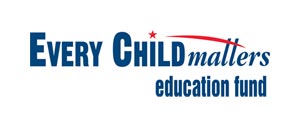‘Every Child Matters’ validates report
Local non-governmental organization Every Child Matters-Sierra Leone, have presented a survey report for validation at the British Council auditorium in Freetown. The validation report is an analysis of data collected in seven districts on five core rights on promoting rights in schools initiative, supported by Action Aid International Sierra Leone.
The validation exercise is the final stage of the promoting rights in schools initiative project which is a collaborative approach between Action Aid and the Rights to Education project that aims to secure free, compulsory, quality public education for all. The first stage was a training aimed at building the capacity of head teachers in selected schools on the concept of promoting rights in schools initiative that was completed in February of this year. The exercise is aimed at monitoring the implementation of selected ‘promoting rights in schools’ in seven districts.
Speaking at the validation, the Executive Director Every Child Matters, Abdul Karim Koroma, said that his organization is actively involved in engaging other organizations on issues of education. The validation report he said revealed that a huge amount of untrained and unqualified teachers are found in a number of schools. The exercise he said was done in seven districts across the country an analysis of data collected on five core rights on promoting rights in schools. He said The analysis of the right to trained and unqualified teachers reveal that there is still a shortage of teachers in these schools and that some teachers are paid below the minimum wage level, which might have implications for retention.
The chairperson for the occasion Henry H. B. Fyfe, Education Officer, Freetown City Council, in his opening remarks said most children are suffering as a result of lack of furniture noting that the children have the right to be comfortable in school. He said ‘we should try to work together to provide basic necessity for the children’. The children are also to be thought by qualified teachers adding that there is need for head teachers to make sure proper learning takes place in the schools.
This, Mr. Fyfe said, should be a concern and as stakeholders including parents, the children must be controlled and given the necessary support.
In her statement, Ms. Cecilia Sannoh, Education Coordinator Action Aid International Sierra Leone, said that promoting rights builds on UNICEF standards of education. This she said aims at engaging all stakeholders in promoting education and it’s also promotes transparency in schools.
She stressed that promoting rights is a toll used to collect data for a change in the education sector, noting that the input of stakeholders was very much relevant to the exercise.
Mr. Koroma from the Ministry of Education, Science and Technology said the Ministry is very much concerned about the rights of children in school, especially sitting accommodation and the distribution of learning materials to schools.
Teachers, he said, should be role modes and examples to society. He said heads of schools should try and discourage social clubs so as to discourage violent activities in schools. The primary school is the weakest aspect in the school system he noted adding that this is the area we should try to develop so that the children will be built on a good foundation.
Before now school teachers were trained on rights in schools leading to the data collection. The data collection exercise relied on multiple of research methodologies including community scans, secondary data and quantitative data collection in the field.
The primary source of the data was the interview session with head teachers collected in seven districts with ten schools per district. The field work involved face to face interview with head teachers and teachers and other stakeholder in their respective schools.
Seventy interviews were conducted in seven districts with ten schools per district. Focus group discussion were being done both on the site of the interview and the community of the interviewee. Secondary data was also collected through school records and information received from the ministry of education.
The findings reveal that textbook supplies to schools should be up scaled in all the sampled districts, so that more children get access to reading materials as a conduit for quality learning. There is need for a school bus system to be introduced in Bo, Moyamba, and Kono to facilitate the early attendance and return home. A school bus system complements the safe arrival in school and return home and this according to the survey minimizes the chances of bullying and violence to and from school. In sampled schools only one percent of children sit on the floor and this means that there is adequate furniture in all the schools sampled. Eight percent of the schools sampled receive text books with western area reported as the highest in the seven districts.
The main goal of the data collection exercise is to get a comprehensive state of the application of children’s right as applied to the school context that will enable a systematic approach to change the attitudes of teachers. All data collected in individual school were easily consolidated in a structured format to provide a district and national perspective on the state of education. Stakeholders are encourage to come together to analyze the information and debate the solutions.
By Hawa M. Kamara
Stay with Sierra Express Media, for your trusted place in news!
© 2013, https:. All rights reserved.






